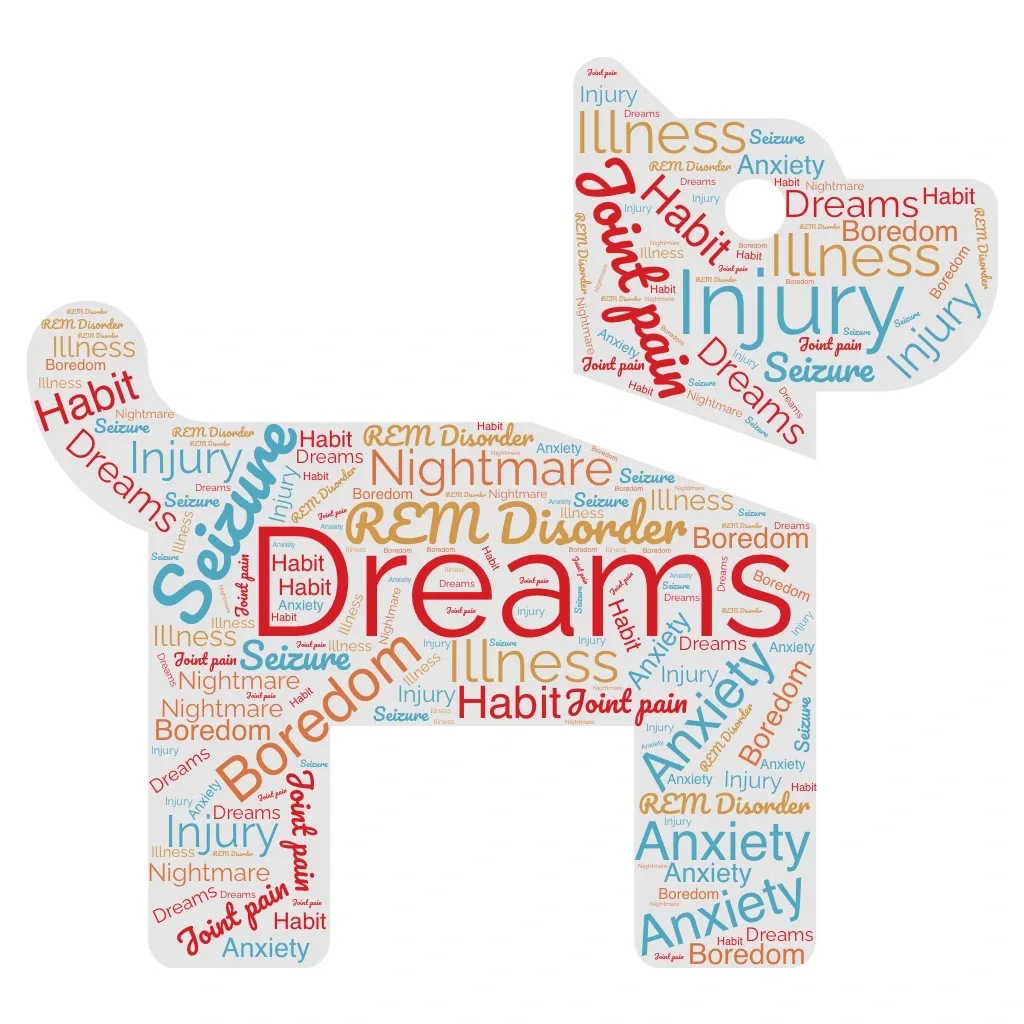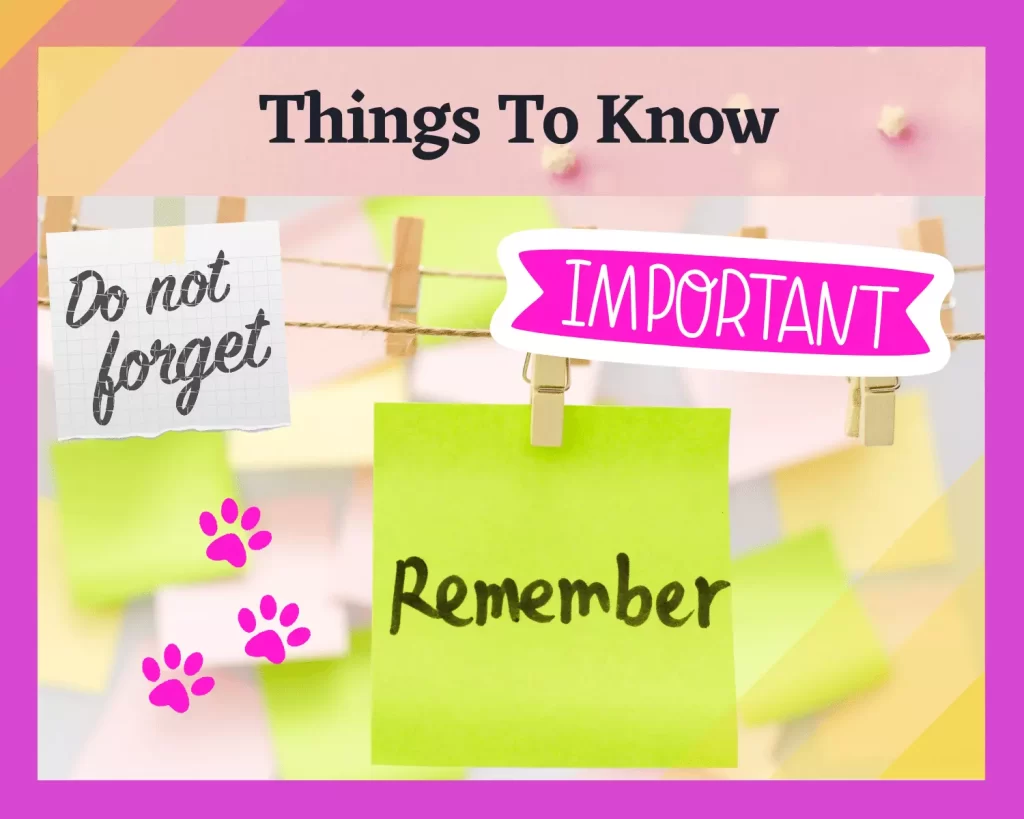Do you ever wonder why your dog whimpers in his sleep? It can be a bit of a mystery, especially if your dog is otherwise healthy and happy. In this blog post, we will discuss ten possible reasons why your dog might whimper in his sleep.
If you are concerned about your dog’s health, it is important to consult with your veterinarian to rule out any underlying medical issues. But in most cases, it is just a normal part of his slumber.

One of the perplexing behavior of dogs is whimpering in their sleep. Dogs whimper in their sleep for 10 different reasons. It could be dream, a nightmare, seizure, or even anxiety. Even a bloated stomach or any illness could be the cause too. In any case do remember not to wake the dog up as it can have serious negative consequences.

Reasons Why Your Dog Is Whimpering During Sleep
Your Dog Is Dreaming

Dogs whimper during sleep when they are dreaming. This is a normal behavior, and you should not be alarmed if your dog is whimpering in his sleep. In fact, you may even find it endearing! Dogs will often dream about things that they have experienced during their waking hours.
So, if your dog spends a lot of time playing fetch or going on walks, he is likely to dream about those activities while he sleeps. Dreaming allows dogs to process the events of the day and helps them to relax and get some rest.
If your dog starts whimpering in his sleep, don’t wake him up; just let him continue to dream in peace.
Note: Most of us have probably caught our dogs having eye movement, twitching, movement of paws or even making gentle barking or others noises in their sleep and wondered what on earth they could be dreaming about. Believe it or not, researchers have actually studied this question and found that dogs experience many of the same dream states as humans do. So if you do find your dog having any of these, you know they are dreaming and you don’t need to worry.
You can also read more on the American Kennel Club website – https://www.akc.org/expert-advice/lifestyle/why-dog-twitch-in-sleep/
The REM Cycle In Dogs
Some people think that dogs don’t have REM sleep, because they don’t technically “dream” in the way humans do. REM is actually Rapid Eye Movement in short. Studies have shown that dogs actually do experience REM sleep- it just might look a little different than ours.
For example, large dogs have a cycle of 45 minutes, while small dogs have a cycle of 30 minutes. So next time you catch your pup snoozing away, know that they’re getting the same healthy benefits from their slumber as we are!
Recent Research on the REM in dogs have shown that
- The REM increases with age. So if you do notice a change don’t be worried.
- Male Dogs have a shorter REM. So, if you have a male and a female, don’t compare them.
If you would like to know more about this, here is the link.
https://pubmed.ncbi.nlm.nih.gov/30264371/
You can also read more on the American Kennel Club website – https://www.akc.org/expert-advice/lifestyle/why-dog-twitch-in-sleep/
Note: Dreams occur during REM time. So they are not one and the same.
The REM Behavior Disorder – Excessive Whimpering

Some dogs exhibit strange behavior during REM sleep, which is commonly known as REM disorder behavior. This can include violent jerks, howling, barking and chewing. While the cause of this is not fully understood, this is genetically transmitted.
Typically this starts from a very young age. Sadly, in some rare cases dogs have been put to sleep. However this is only in cases where a dog does not respond to treatment at all. Usually anti-convulsant drugs are used to treat such cases which soothe the nerves.
Pro Tip: Differentiate REM disorder from dreams. The key is the intensity. For example, a violent jerk as against a mild jerk. Also the overall intensity. Second, the occurrence. Is it everyday? If it is, then, you should be visiting the doctor. Even if you are in doubt, it is better to visit the vet so that you can be comfortable or catch it early.
Your Dog Is Having Nightmares

Do you ever wake up in the middle of the night to your dog whimpering or even crying in their sleep? You may have wondered if dogs have nightmares. As it turns out, they very well may do! Scientists believe that since dogs share a closely similar sleep pattern to humans, it’s likely that our furry friends experience dreams and possibly nightmares as well.
When our dogs have a bad dream, we may hear them whimpering or see them twitching in their sleep. A nightmare can be typically defined as a bad dream. Dogs often vocalize (or make noise) during their bad dreams, so if you’ve ever wondered why your dog was making weird noises at night, now you know.
Pro Tip: The Intensity in the case of a nightmare is not as high as a REM disorder. You will be able to perceive the negative vocal sounds either being fear or sadness. This is different from a dog dreaming that it is excitedly chasing a squirrel.
Joint Pain In Older Dogs

We all love to see our dogs happy, playing fetch or just lounging around the house. But as they age, you may start to notice them doing some strange things- like whimpering in their sleep. This can be due to a number of things, but one of the most common reasons is joint pain.
Just like humans, as dogs get older they can start to experience aches and pains in their joints. If your dog is suddenly whimpering in their sleep, it’s important to take them to the vet to rule out any other potential health issues.
But don’t worry, there are plenty of ways you can help ease your dog’s joint pain and keep them comfortable as they age gracefully.
Pain In An Injured Dog

We all know how much our dogs mean to us. They are our loyal companions, and we love them unconditionally. So when they get hurt, it’s natural for us to want to do everything we can to help them. Sometimes an injury can cause your dog to whimper in their sleep.
Don’t worry – this is perfectly normal. Keep an eye on your pup and make sure they are getting plenty of rest, and soon they’ll be back to their old selves again!
Boredom

Dogs are known to be man’s best friend. But, what happens when your best friend is bored? Boredom can often lead to a restless sleep, which causes your dog to whimper in their slumber. However, there are ways to keep your furry friend entertained so they can get a good night’s sleep.
Here are some tips on how to keep your dog from getting bored.
- Get them a toy that will keep them mentally stimulated, like a Kong ball.
- Take them on walks or runs more frequently so they can release all that energy.
- Give them access to an outdoor space where they can release their energy.
Bloated Stomach Or Other Medical Condition Can Cause Whimpering

If you’ve ever been woken up by the sound of your dog whimpering in his sleep, you may have wondered what was wrong. While it’s natural to worry about your furry friend, there’s usually nothing to worry about – dogs sometimes whimper in their sleep due to a bloated stomach or other medical condition.
Believe it or not, this is actually a common occurrence for dogs. In fact, there are a variety of reasons why dogs whimper in their sleep, from having a bloated stomach to experiencing pain from another medical condition.
If your dog is constantly whimpering in his sleep, it’s important to understand what might be causing this and seek veterinary help.
Pro Tip: In cases of pain, dogs whine differently. In case you have owned dogs for long, you will be able to recognize this. If not, no harm in saying Hi to the local vet.
Separation Anxiety Or Other General Anxiety

Dogs whimper in their sleep for a number of reasons- one of which is anxiety. If your dog whines, cries, or pants excessively during sleep, it could be a sign he’s experiencing separation anxiety or general anxiety. Understanding the causes and symptoms of these disorders can help you better address the problem and ensure your pup gets the best possible sleep.
In case of puppies, the separation from the mother can be a cause.
Pro Tip: If you suspect anxiety, then it is always better that you reach out to your vet. In cases of anxiety, the symptoms are not limited to whimpering during sleep. Your dog may be hiding under the bed or sofa, not eating much and tries to follow you around.
Seizure

Dogs may whimper or cry out in their sleep for a number of reasons. If your dog is whimpering in his or her sleep, it could be a sign that he or she is having a seizure. Other signs of seizures in dogs include urination, defecation, drooling, chomping at the air, tongue chewing, and forelimb paddling.
If your dog is displaying any of these behaviors, it’s important to seek veterinary care immediately. Seizures can be frightening for both you and your dog, but with the proper treatment they can be managed effectively.
Pro Tip: Be aware of what to do if your dog is having a seizure. Here is a link. https://veterinaryemergencygroup.com/blog/dog-seizures/
Sheer Habit

Dogs may whimper softly in their sleep for many reasons. Whimpering is also a way for dogs to soothe themselves — sort of like how people hum to themselves. If your dog only whimpers occasionally while they sleep, it’s probably nothing to worry about.
But if they start doing it more often, it might be time to take them to the vet to rule out any health concerns. If health concerns are ruled out and other reasons such as boredom and anxiety, then, it could be sheer habit.
Things To Remember

If you’ve ever had a dog, you know that they sometimes whimper and whine in their sleep. It’s tempting to wake them up, but did you know that it can have serious consequences? Dogs need to dream just like we do, and waking them up can interfere with that process.
So next time your dog is dreaming, resist the urge to wake them up!
It is common for puppies who have been separated from their mother to whimper. However, there are many things that you as a pet owner can do to help your puppy feel comfortable and ease their transition into their new home.
With a little patience and understanding, you can help your pup adjust to their new environment and create a bond that will last a lifetime. Think your dog is anxious? Dogs can get anxious just like people do.
While the root of most canine anxiety cases come from previous trauma there are a number of things you as an owner can do to ease your dogs anxieties. Often, its simply a case of spending more time with them!
Below are some tips that can help alleviate their anxiety levels:
1. Quality time – Less time but fun time
2.Scheduling “Me” time with your dog
3. The power of touch
4.Getting out and about
Did You Know? Dogs Benefit From Sleep And Learn Better?

Sleep is critical for all mammals, including dogs. In fact, a dog’s brain wave patterns during sleep are similar to those of humans. Researchers have found that sleep helps dogs learn and remember things better.
So if you’re trying to teach your dog a new trick, make sure he gets plenty of rest first! Dogs recollect information more effectively during sleep, so a good night’s sleep can mean the difference between your dog nailing that doorstop-training lesson or flunking out completely.
And like people, different dogs need different amounts of slumber. Puppies and older dogs tend to snooze more than adult canines, while herding breeds often require less shut-eye than other types. Regardless of age all dogs need sleep.
You can access the research with the following link:
Wrapping Up:
So if your dog is whimpering in sleep, you may want to just let her be. She’s probably dreaming and it’s nothing to worry about. However, if she starts having nightmares or strange REM Behaviors Disorder episodes, then it might be time to consult with your vet. And whatever you do, don’t wake the poor pup up! You could end up causing serious harm to your dog.


